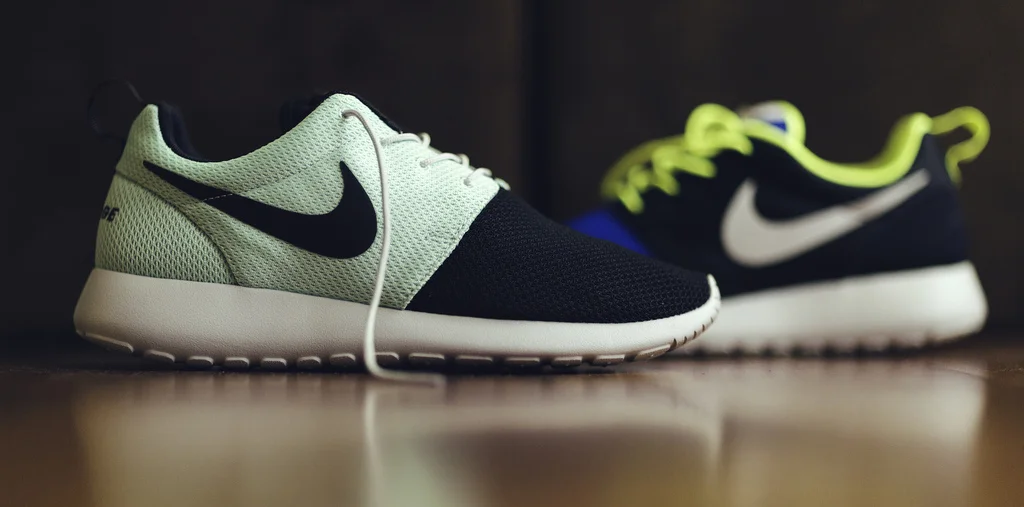I played competitive volleyball throughout high school because at almost six feet tall the sport seemed like an obvious choice. While I was by no means a star athlete, I played four years on club and varsity teams before retiring my jersey. I worked out 5-6 days a week most of the calendar year, ate whatever I felt like eating, and wore size 6-8 pants. I have no idea what I weighed because it simply didn't matter to me.
There were plenty of girls who were skinnier or curvier than I was, and I didn't care. I never wished for bigger boobs or a smaller waist line, but I also wasn't obsessed with my looks. My body was just my body— it served a purpose, and I knew nothing different and wanted nothing different.
After high school graduation I gained the dreaded freshman fifteen, which I only realized years later when picture evidence indeed proved that my face was very, very puffy from 2000-2002. I suppose that's what happens when one exchanges daily workouts for daily frozen yogurt in the Dining Commons. Eventually I learned to eat a more balanced diet and a lot of the weight came off. I had good friends and a sweet boyfriend, and losing or gaining 10 pounds here and there wasn't something that bothered me. In fact, it wasn't even something I noticed.
In an effort to get toned for my wedding 10 years ago, I started running. I hadn't been exercising regularly since high school, so starting a work out regimen seemed like a responsible thing to do. I ran three days a week and added some weight training at the YMCA.
And almost immediately, the comments started.
"You look so skinny! What's your secret?"
"Have you lost weight? How much weight?"
"You are too skinny. Please put some meat on your bones."
"I'm concerned about you? Do you have an eating disorder?"
All of a sudden, for the first time in my life, my body mattered to other people. They noticed, and they cared, and I wasn't sure why. It was my body, not their's, but it was being watched closely and with conviction. I remember feeling a mixture of embarrassment and pride about my new, skinnier frame. I hadn't set out to lose weight or gain attention, and yet I'd found both.
Several years later, when I began training for half marathons, the comments only continued. I ran five days a week because I loved the sport and camaraderie with friends, but my 5'11'' size 2 frame really bothered people. I wasn't dieting (I didn't even own a scale—and still don't!) but I knew when I'd lost weight based on the comments from family, co-workers and friends.
Wow, you are just so skinny, they'd say.
And while it was true, I hated how they felt the need to tell me so. I hated that "skinny" was both a bad thing and a good thing; something to chase and something I'd done wrong. Was skinny a compliment? Was skinny a concern? Was skinny bad? Was skinny good? But mostly, I hated the realization that other people were paying close attention to my body, noticing my physical changes more than I noticed them myself.
Now, years later, I scrutinize my body in a way I never did before. Some of this is because my tummy has never quite looked the same since having babies, but a lot of its because once I realized how much other people were paying attention to my body, I started paying attention too. The oblivious high school and college girl, who didn't notice a 15 pound weight gain, has been replaced by a woman who sometimes stares in the mirror for long periods of time, dreaming about when I can run a half marathon again. If they noticed when I lost weight, they also notice when I gain weight.
And I guess that's why I try not to call women skinny or thin, or any other adjectives that imply I'm sizing them up. When your cheeks are rosy and there's a smile on your face, I will tell you that you look great, because you do. I say things like:
"You are owning that outfit today."
"You look so refreshed and beautiful."
"Every time I've seen you recently, you seem so energetic and happy."
And when I'm staring myself in the mirror, analyzing and wishing things looked a little different, I tell myself the same things. If I'm moderately exercising and watching what I eat, I say "You are exactly the size you are supposed to be" and if I'm not taking care of my body, if I'm not giving it the nutrition and exercise it needs, then I tell myself, "You need to take care of yourself."
There are exceptions to my skinny talk, at time. There are people who are working very hard to lose post-baby pounds, or break lifelong unhealthy overeating habits. If you're following a friend's weight loss journey carefully, there may be appropriate times to tell someone they look thin. But, a lot of times, skinny and thin aren't necessary adjectives. A lot of the time, another person's weight simply doesn't need to be part of the conversation.
